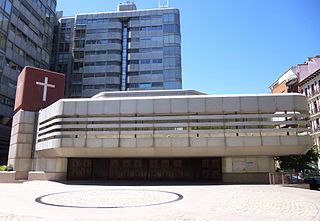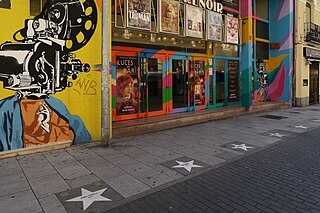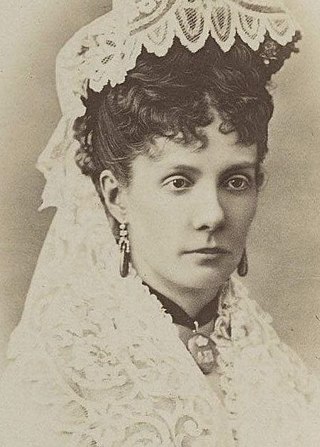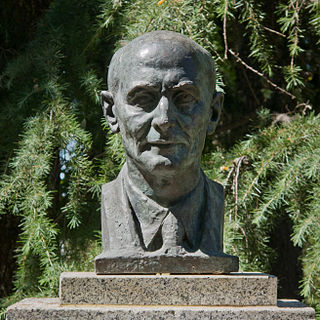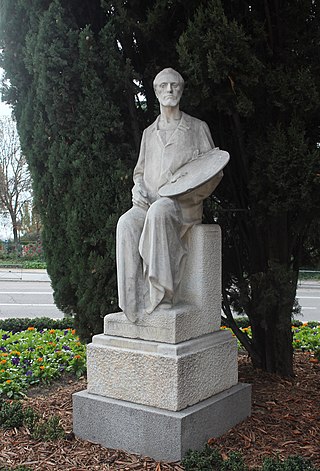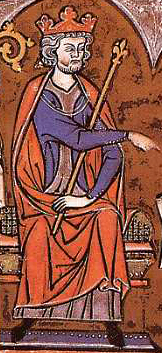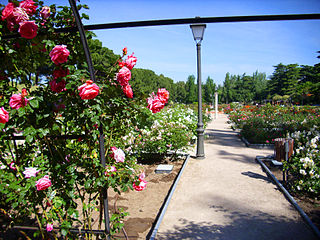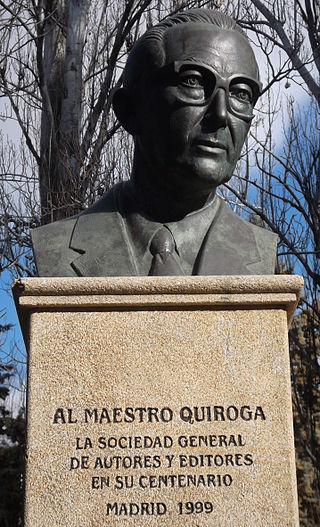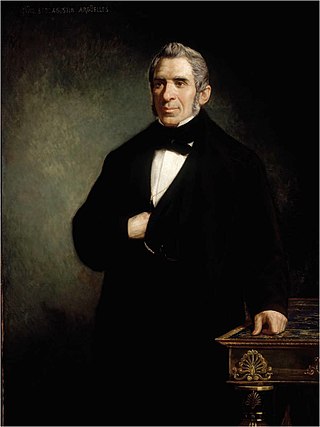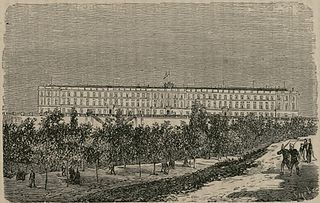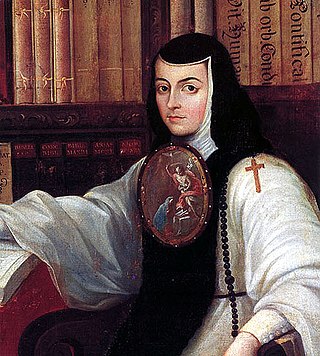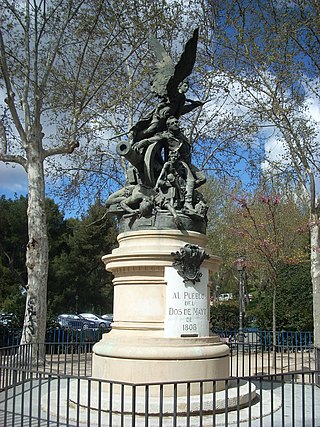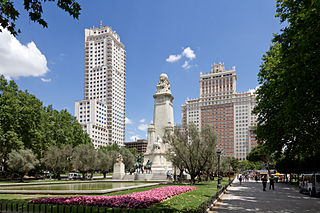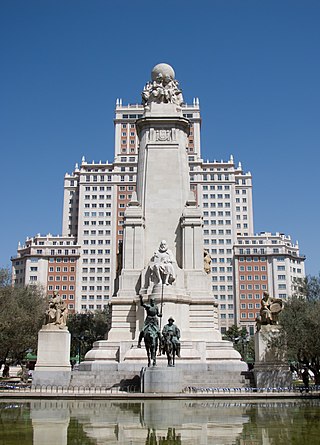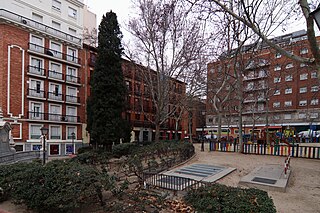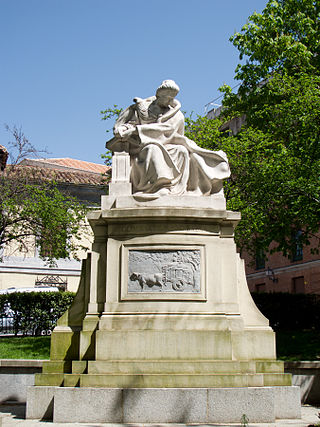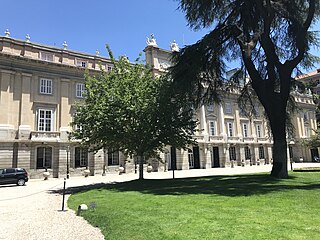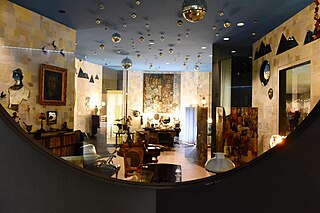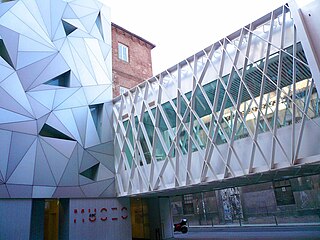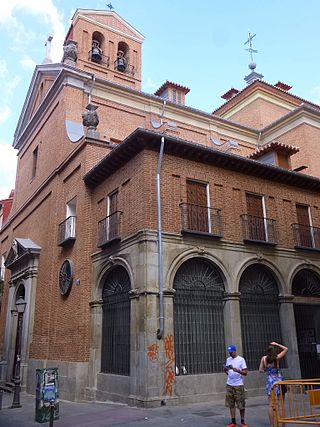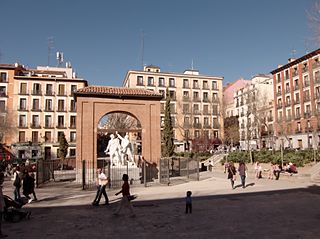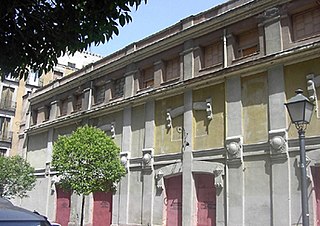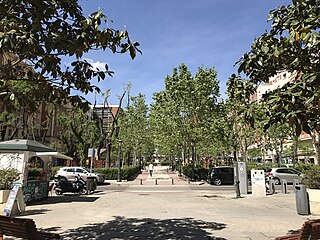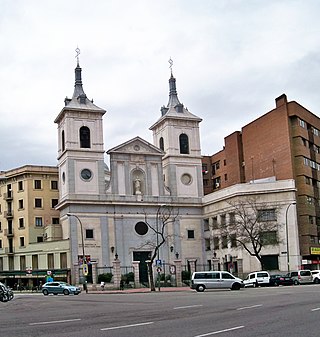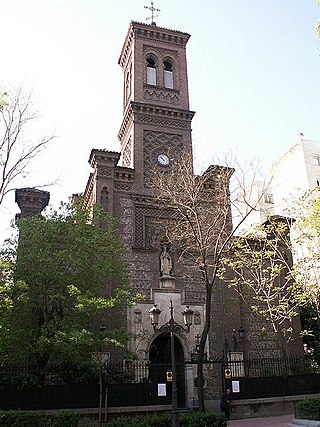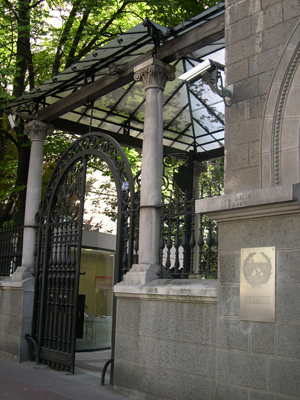Self-guided Sightseeing Tour #6 in Madrid, Spain
Legend
Guided Free Walking Tours
Book free guided walking tours in Madrid.
Guided Sightseeing Tours
Book guided sightseeing tours and activities in Madrid.
Tour Facts
10.5 km
220 m
Experience Madrid in Spain in a whole new way with our free self-guided sightseeing tour. This site not only offers you practical information and insider tips, but also a rich variety of activities and sights you shouldn't miss. Whether you love art and culture, want to explore historical sites or simply want to experience the vibrant atmosphere of a lively city - you'll find everything you need for your personal adventure here.
Activities in MadridIndividual Sights in MadridSight 1: Parroquia del Buen Suceso
The third church of Buen Suceso is a Catholic church in the Spanish city of Madrid, located on Calle de la Princesa. The first church of Buen Suceso had been in the Puerta del Sol. A second church was destroyed during the civil war, was partially restored but was finally demolished in 1975.
Sight 2: Paseo de la fama de Madrid
The Madrid Walk of Fame, also known as the Spanish Film Walk of Fame or the Walk of the Stars of Madrid, is a section of Martín de los Heros Street located in the Argüelles neighborhood of Madrid (Spain) in which tribute is paid to the most outstanding actors and filmmakers of Spanish cinema. similar to the Hollywood Walk of Fame on Hollywood Boulevard.
Sight 3: Monumento a la Infanta Isabel
Infanta Isabel of Spain was the oldest daughter of Queen Isabella II of Spain and her husband Francisco de Asís, Duke of Cádiz. She was the heiress presumptive to the Spanish throne from 1851 to 1857 and from 1874 to 1880. She was given the title Princess of Asturias, which is reserved for the heir to the Spanish crown. In 1868, she married Prince Gaetan, Count of Girgenti, a son of King Ferdinand II of the Two Sicilies. Gaetan committed suicide three years later.
Wikipedia: Infanta Isabel, Countess of Girgenti (EN), Website
Sight 4: Paul P. Harris
Paul Percy Harris was a Chicago, Illinois-based attorney. He founded the club that became the humanitarian organisation Rotary International in 1905.
Sight 5: Monumento al pintor Eduardo Rosales
The Monument to Eduardo Rosales is a stone statue, designed by the Spanish sculptor Mateo Inurria, which pays homage to the famous painter Eduardo Rosales.
Sight 6: Jaime I El Conquistador, Rey de Aragón
James I the Conqueror was King of Aragon, Count of Barcelona, and Lord of Montpellier from 1213 to 1276; King of Majorca from 1231 to 1276; and King of Valencia from 1238 to 1276. His long reign of 62 years is not only the longest of any Iberian monarch, but one of the longest monarchical reigns in history, ahead of Hirohito but remaining behind Queen Elizabeth II, Queen Victoria, and Ferdinand III of Naples and Sicily.
Sight 7: Fuente Juan de Villanueva
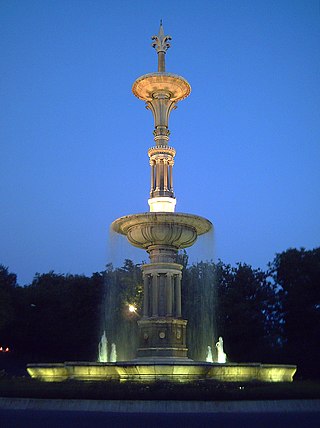
The Juan de Villanueva fountain is a monumental fountain in Madrid that is currently located in the Parque del Oeste, between Paseo de Camoens and Calle de Francisco y Jacinto Alcántara. From its inauguration in 1952 until 1995, it was located in the San Vicente roundabout. Due to its shape or its previous location, it has also been called the fountain of Príncipe Pío or "ace of cups".
Sight 8: La Rosaleda
The Rose Garden of the Parque del Oeste also more formally known as the Jardín de Ramón Ortíz, Rosaleda de Madrid is a 32,000 m² rose garden, which is located in the Parque del Oeste in the city of Madrid, Spain.
Sight 9: Monumento al Maestro Quiroga
Manuel López-Quiroga Miquel, better known as Maestro Quiroga, was a Spanish composer especially known for his coplas, cuplés, and zarzuelas. He was also a pianist and one of the group of songwriters, Quintero, León and Quiroga, who created some of Spain's most popular and best-known songs from the mid-twentieth century.
Sight 10: Monumento a Agustín de Argüelles
Agustín de Argüelles Álvarez, nicknamed "the Divine" for his oratory during the Cortes of Cádiz, was a Spanish lawyer, politician and diplomat. He was president of the Cortes in 1841 and tutor to Queen Isabel II.
Sight 11: Monumento a los caídos en el cuartel de la Montaña
The Cuartel de la Montaña was a military building in Madrid built during the nineteenth century, located on the mountain of Príncipe Pío. It achieved great notoriety for being the place where the military uprising of July 1936 began in the Spanish capital. It was practically destroyed during the civil war and would later be demolished.
Sight 12: Monumento a Sor Juana Inés de la Cruz
Juana Inés de Asbaje y Ramírez de Santillana, better known as Sor Juana Inés de la Cruz or Juana de Asbaje, was a Hieronymite nun and writer from New Spain, an exponent of the Golden Age of literature in Spanish. He also incorporated classical Nahuatl into his poetic creation.
Sight 13: Parroquia de Santa Teresa y San José
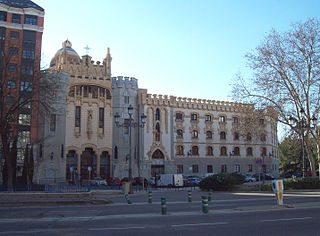
The National Temple of Santa Teresa de Jesús is a Catholic temple located in the Plaza de España in Madrid and belongs to the Carmelite order. With the name National Temple of Santa Teresa de Jesús and Convent of the Discalced Carmelite Fathers, it was declared an asset of cultural interest on December 20, 1995. From 1965 to 2015 it was the headquarters of the Parish of Santa Teresa and San José, which is why the temple is also known by that name.
Wikipedia: Templo Nacional de Santa Teresa de Jesús y Convento de los Padres Carmelitas Descalzos (ES), Url
Sight 14: Monumento al Pueblo del Dos de Mayo de 1808
A los héroes del dos de mayo or Al pueblo del dos de mayo de 1808 is an instance of public art in Madrid, Spain. A sculptural work by Aniceto Marinas, the monument is an homage to the role of the Madrilenian people during the 1808 Dos de mayo uprising.
Sight 15: Plaza de España
Plaza de España is a large square and popular tourist destination located in central Madrid, Spain at the western end of the Gran Vía. It features a monument to Miguel de Cervantes Saavedra and is adjacent to two of Madrid's most prominent skyscrapers. Additionally, the Palacio Real is only a short walk south from the plaza. After 2+1⁄2 years of renovation, on 22 November 2021, the square was reopened for pedestrians.
Sight 16: Monumento a Cervantes
The Monument to Miguel de Cervantes is an instance of public art located in Madrid, Spain. Erected on the centre of the Plaza de España, it is dedicated to Miguel de Cervantes, widely regarded as the greatest writer in the Spanish language. The monument incorporates a stone monolith with several statues and a detached bronze sculptural group representing Don Quixote and Sancho Panza.
Sight 17: Plaza de Cristino Martos
The Plaza de Cristino Martos is an irregular space between the streets of La Princesa, to the south, and the confluent streets of San Bernardino, Manuel, Duque de Liria and Conde Duque, to the north-northeast. Although it was previously called the Plaza de los Afligidos, since 1895 it has been named after the orator Cristino Martos.
Sight 18: Emilia Pardo Bazán
The Statue of Emilia Pardo Bazán is an instance of public art in Madrid, Spain. Located next to the calle de la Princesa, it is dedicated to Emilia Pardo Bazán.
Sight 19: Palacio de Liria
The Liria Palace is a neoclassical palace in Madrid, Spain. It is the Madrid residence of the Dukes of Alba.
Sight 20: Museo de Arte Contemporáneo
The Museo de Arte Contemporáneo, formerly known as Museo Municipal de Arte Contemporáneo, is a municipally-owned museum in Madrid, Spain, located in the historic Conde Duque barracks. The museum was inaugurated in November 2001.
Wikipedia: Museo de Arte Contemporáneo (Madrid) (EN), Website
Sight 21: Museo ABC
Museo ABC is a museum in Madrid, Spain, dedicated to drawing and illustration.
Sight 22: Iglesia de Nuestra Señora de Montserrat
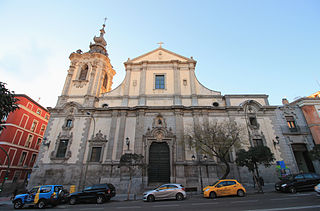
The Church of Our Lady of Montserrat is a Baroque-style, Roman Catholic church in central Madrid, Spain. Despite the imposing facade on Calle San Bernardo, the interior has relatively few bays because it was not possible to complete the building as originally projected.
Sight 23: Iglesia de Nuestra Señora de las Maravillas
The Church of Our Lady of Wonders is a Roman Catholic church in Madrid, Spain. With a portico facing Calle de la Palma, one side facing Calle del Dos de Mayo, and the oldest part of the enclosure of the monastery of San Antón facing the Plaza del Dos de Mayo.
Wikipedia: Iglesia de los Santos Justo y Pastor (Madrid) (ES), Url
Sight 24: Plaza del Dos de Mayo
The Plaza del Dos de Mayo is an urban square in Madrid, Spain. It is the centre of the Malasaña area, within the administrative neighborhood of Universidad.
Sight 25: Teatro Maravillas
The Teatro Maravillas is a theatre located in the Madrid neighbourhood of Malasaña. It is the heir to several rooms of the same name, the first of which was inaugurated in 1887. In 1999 it was closed for security reasons, reopening in autumn 2005, already remodelled and by the same artists with whom it was closed, the comedians Faemino and Cansado.
Sight 26: Plaza del Conde del Valle de Suchil
The Plaza del Conde del Valle de Súchil in Madrid, Spain, is an elongated square located in the Arapiles neighborhood of the Chamberí district. It begins in Alberto Aguilera Street and ends in Arapiles Street. Named in honor of José María de Garay y Rowart, 3rd Count of Valle de Súchil, Spanish lawyer and politician who was mayor of Madrid.
Sight 27: Francisco de Quevedo y Villegas
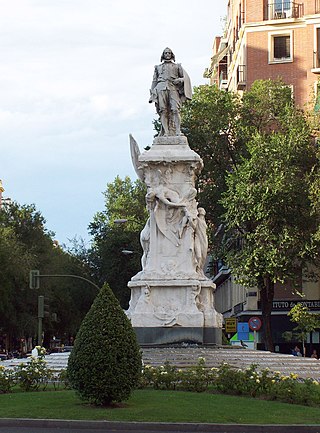
Quevedo or the Monument to Quevedo is an instance of public art in Madrid, Spain. A work by Agustín Querol, it is dedicated to Francisco de Quevedo, distinguished writer of the Baroque era.
Sight 28: Sinagoga de Madrid
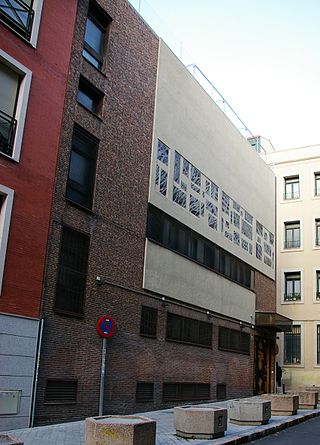
The Beth Yaacov Synagogue, also known as the Beth Jacob Synagogue or the Synagogue of Madrid, is a Jewish congregation and synagogue, located at 3 Calle Balmes, in the Chamberí district of Madrid, Spain. When it opened in 1968, it was the first new synagogue building built in Spain since the Catholic Monarchs of Spain expelled the country's Jews in 1492.
Sight 29: Parroquia de Santa Teresa y Santa Isabel
The Church of Santa Teresa and Santa Isabel is a church located in the Glorieta del Pintor Sorolla in the district of Chamberí, in Madrid, Spain.
Sight 30: Parroquia Basílica Virgen Milagrosa
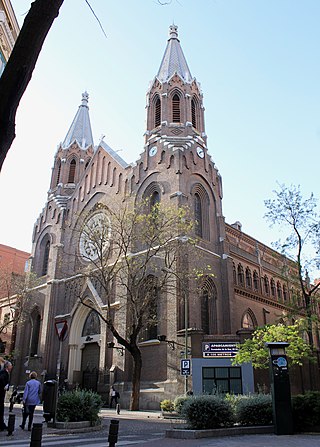
The Church of La Milagrosa, formerly Church of San Vicente de Paul, is a Roman Catholic church in Madrid, Spain. With an area of 900 square metres (9,700 sq ft), it is situated on Calle García de Paredes, west of the InterContinental Madrid. The church was built between 1900 and 1904 under the architects Juan Bautista Lázaro de Diego and Narciso Clavería y de Palacios. The architecture is eclectic, exhibiting Neo-Mudéjar features on the exterior and mainly Neo-Gothic features in the interior.
Sight 31: Museo Sorolla
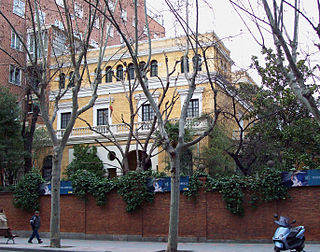
The Sorolla Museum is a single-artist museum in Madrid, Spain, devoted to the work and life of Joaquín Sorolla and the members of his family, such as his daughter Elena. The museum is located in the house that was the artist's home and workshop, which was converted into a museum after the death of his widow. It was declared Bien de Interés Cultural in 1962. It is one of the National Museums of Spain and it is attached to the Ministry of Culture.
Sight 32: Parroquia San Fermín de los Navarros
The Church of San Fermín de los Navarros is a church located in Madrid, Spain. It is dedicated to Saint Fermin, and replaces an earlier church dedicated to the saint which was demolished to make way for the Bank of Spain.
Sight 33: Colegio de Ingenieros de Caminos, Canales y Puertos
The College of Civil Engineers is a professional association in Spain. It was created in 1954-5 with a direct link to the profession of Civil Engineer, within Civil Engineering. Since its creation in 1954-5, it has been a unique college, territorially organized into demarcations, which coincide with the Spanish autonomous communities. The CICCP regulates the profession of civil engineer in Spain.
Wikipedia: Colegio de Ingenieros de Caminos Canales y Puertos (ES), Website
Sight 34: Museo Lázaro Galdiano
Get Ticket*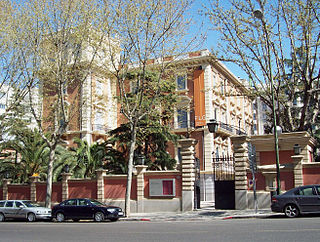
The Lázaro Galdiano Museum is an art museum in Madrid, Spain. It houses the art collection of José Lázaro Galdiano. The museum was inaugurated on 27 January 1951.
Share
Disclaimer Please be aware of your surroundings and do not enter private property. We are not liable for any damages that occur during the tours.
GPX-Download For navigation apps and GPS devices you can download the tour as a GPX file.
